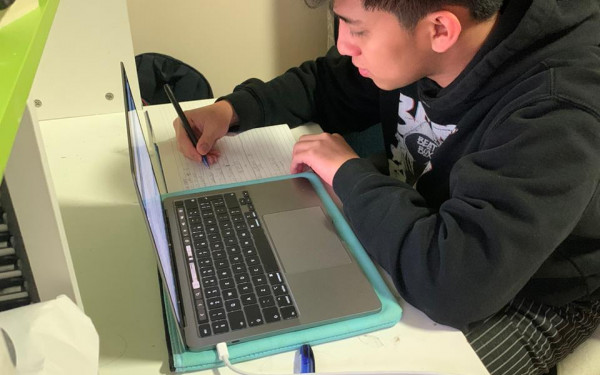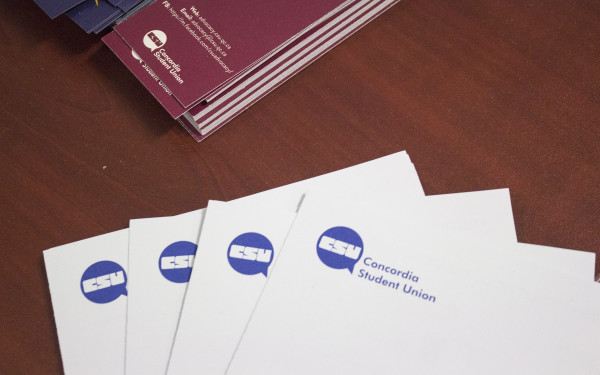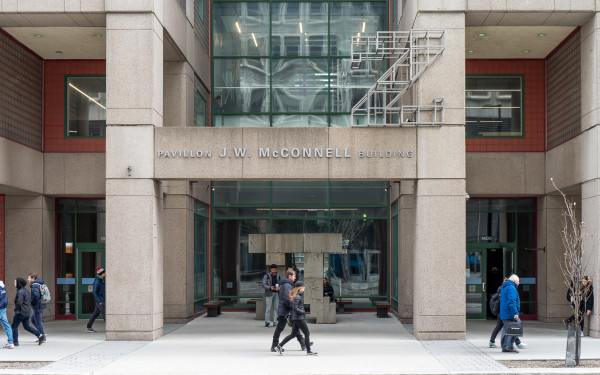An open letter to Concordia from a concerned student
I am writing to you today to express my concerns—as well as the majority of the student population’s concerns—regarding how Concordia is handling online learning during the COVID-19 pandemic.
We were lied to regarding course accessibility, lied to about the switch to online learning investments, and taken advantage of due to a global crisis. We are being swept under the rug and kept in the dark as to any hope of a solution or care from the administration team, and feel unheard, unimportant, and used.
In this letter, I will express why I believe Concordia administration has no interest in its students’ wellbeing, as well as question the foreseeable future of our online learning experience and why nothing has been done during the past seven months.
We were informed in May 2020 that our learning would be modified to exist. To quote directly from an email from our President Graham Carr himself, the fall 2020 term would be “online—accessible anytime, anywhere in the world.”
I would also like to emphasize another quote from this email, which stated “[W]e remain committed to providing an online version of in-person sessions for those who cannot, or choose not to, attend for any reason. This is part of our commitment to be accessible and equitable. Whether you’re a student in your home country or your Montreal apartment, you will be able to fulfill your course requirements.”
I am currently a third-year fine arts student in my first part-time semester. I elected to take fewer courses as I am an essential worker and felt unsure as to how Concordia would handle the coming term; my instincts were correct. The statement made to us by President Carr was false, as all three of my courses have mandatory attendance.
Many students have communicated on online platforms, such as the Concordia subreddit, that their courses also have mandatory attendance. I encourage anyone reading this to take a quick visit to r/Concordia, as you will see voices projecting greater frustration, anger, and anxiety than my own.
Students post endlessly about how their workloads have increased and how their professors are not understanding of WiFi and power outages. Another rising issue is Moodle randomly going down, sometimes even in the middle of a quiz or a midterm. Many if not all students have to wait several days before getting a reply from anyone within the Concordia infrastructure regarding the issues—if they get a reply at all.
Many times, a professor will also forget to record an essential part—or sometimes the entirety—of a class session. This leaves students in the dark to choose between taking the lost marks and watching the online recordings, or to lie awake at the crack of dawn to keep their grades safe.
There are students staying awake until 4 a.m. to take a class as they are in another time zone. There are students with poor living conditions who are unable to study in a safe and quiet place. It is ignorant and unjustified for Concordia to assume that all students have adequate access to the tools required to make mandatory attendance, proctored exams, and online schooling in general work so seamlessly as it does for what appears to be few students.
Many professors also require you to utilize a webcam—and if you do not have access to a webcam, well, they will tolerate it—but as mentioned to a student in one of my courses, it can affect your grade and your participation mark.
I have not even mentioned the immense pressure and huge mental health issues students are facing this term. Every day, students post on Facebook, Discord, and on the subreddit that they feel extremely helpless and are about to lose their minds. Students have spoken of suicide, depression, and anxiety. Another issue I would like to present to the administration is the accessibility of mental health services.
On speaking to multiple students from varied departments in my research, I have been told that the waiting list for our mental health services is months long. One student indicated to me that Concordia told him over the phone that very few counsellors were available for tens of thousands of students for the fall 2020 term. Concordia sends us many emails time and time again stating how they have poured millions of dollars into the term for our wellbeing and experience. Where have these investments gone?
As Concordia students, we have yet to see any sort of investment in our educational experience. We are strained, exhausted, and living what seems to be the greatest capitalist experiment yet—Concordia tuition fees.
As an out-of-province student, I typically pay upwards of $10,000 for full-time tuition each year. I am unsure where any of this money is going, other than to pay the staff. I have no access to facilities and no access to studio equipment. As a fine arts student, it is crucial I have access to a strong computer and camera equipment.
Concordia seems to believe that waiving a $50 lab fee and a $17 tuition discount will suffice for the $800+ computer or upgrades that students have or will have to make as this pandemic continues well into the new year and next semester. We cannot continue to put off our studio courses as many have elected to do yet Concordia expects us to continue to pay the same tuition while receiving none of the resources. Concordia, please tell me again where this additional funding has gone into our online learning?
As I currently work at a private art college in Montreal, I can tell you that there is no possible way this money could have been invested in Zoom teleconferencing. This investment would cost in the six-figure range at most, and I make that statement assuming all employees received a pro-Zoom account—which we did not. You would expect in a global pandemic to offer your students the ability to meet, organize, and host their own peer meetings on such a service, but this is not the case.
It seems that pouring millions of dollars into investing in technology and technical training for your professors is also unlikely, seeing how so many other students say their professors have low-quality visibility and random microphones, typically built-in from a headset or their computer, and have little-to-no knowledge of how to use Zoom.
On the note of professors using Zoom, I understand professors have had no control over this situation. They are in a similar boat to us, as they also have no say in many administration decisions—especially the part-time professors, who get an even shorter stick, but I digress.
What I believe Concordia should have done to resolve this issue, would have been to establish and hire a team of students in summer 2020 who would educate and act as on-hand assistance for our faculties and professors. This way, professors would have had more confidence and knowledge—also, they would not have had to teach themselves. Students out of a job would have had an opportunity to earn money and pay their rent. Everyone wins.
This is just one example of a solution that would have benefited everyone involved. We as students are struggling; our work has piled up, and many are hardly getting by on reduced employment and may have had to relocate. Worst of all, many students feel like there is nothing they can do. I speak for a large majority of students when I say we feel unheard, unimportant, and used by the Concordia administration.
We feel that our tuition fees are taken, and we are not given a quality learning experience in turn—which we were informed we would receive, even due to the pandemic—but it never seemed to deliver. I will personally be reducing my course load next semester to avoid the frequent issues and experience Concordia is currently offering down to a single course, and many students are electing to do the same or will be taking the semester off.
I am urging anyone who is considering Concordia as their future university to do further research, and while—at least for the fine arts faculty—many of our professors are truly wonderful, dealing with Concordia and being a student here, in general, makes you feel unimportant. Concordia, your student body is more than willing to provide their input and present solutions to the issues we are experiencing, yet you do not seem to be interested in our voices.
We as students are unhappy with how you have handled our online learning and feel that there are many different solutions to the issues that you as an administration fail to face. We are bombarded with emails about wellbeing, told by health services that the key to our problems is to “not work in our bed and go for a walk if you are feeling down.” It almost seems as if Concordia University is attempting to pin the fault on us, even when they seem to be the root of the issue as a whole.
My questions I will leave you with are the following; As they are desperately needed, will we be receiving further expansion or funding into our wellbeing and mental health services? As it stems out of our own tuition funds, would you be willing to show us where the “online learning investment” money was invested? Can you establish a plan to better train your professors on Zoom, making them more at ease and saving wasted class time when troubleshooting? How do you expect fine arts students to pay full tuition, while bearing the costs of equipment independently—which can cost upwards of thousands of dollars—that in the past was included within our tuition amounts? Can you begin a dialogue between the students and administration directly to come up with solutions that would suit both parties?
Finally, can you present to us feasible solutions for the winter 2021 term that would satisfy your students, or will you continue to act without input and lose more potential students as the student population continues to grow more vocal—ultimately warning those future Concordia students who are interested?
To the administration team of Concordia University: We expect more, and we deserve more. We are hard-working students seeking higher education, and now it seems that we are facing many obstacles—ones that you have placed in our way.
Sincerely,
Juliet Bartlett, Fine Arts - Intermedia (third year)






